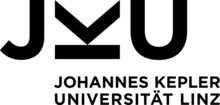ESQ PostDoc
Felix BINDER

Stochastic Processes: Thermodynamics and Complexity
Stochastic behaviour is ubiquitous in nature and its study pervades the quantitative sciences. It arises due to an observer's operational constraints and epistemic limitations. In the quantum domain a further layer of uncertainty is due to the effect of quantum measurement. The resulting stochasticity gives rise to thermodynamics and a breadth of emergent complex phenomena.
For this research project, I will make use of recently developed tools from information thermodynamics, computational mechanics, and open quantum systems theory to investigate the thermodynamic aspects of (discrete) non-Markovian processes and stochastic information processing. This allows, for instance, to identify the essential energetic hallmarks of complexity in process simulation. Here, a process' complexity is associated with the memory cost required for its simulation or future prediction based on past observation. But the description goes beyond complexity itself and the goal is to pinpoint the fundamental thermodynamic imprints of general stochastic information processing. The research links the concept of William of Ockham's eponymous razor -- invoked in the identification of minimal process simulators -- with Landauer's principle, which puts an energetic cost on logical irreversibility. In the spirit of both of these principles the focus lies on the identification of thermodynamic bounds for stochastic information processing, and in particular for process prediction and simulation.
Felix Binder has moved on to Trinity College Dublin, where he works as Assistant Professor for Quantum Science.
Navigation
Contact
ESQ Office
Austrian Academy of Sciences (ÖAW)
Atena Zalbeik-Dormayer
Boltzmanngasse 5
1090 Vienna
office(at)esq-quantum.at





